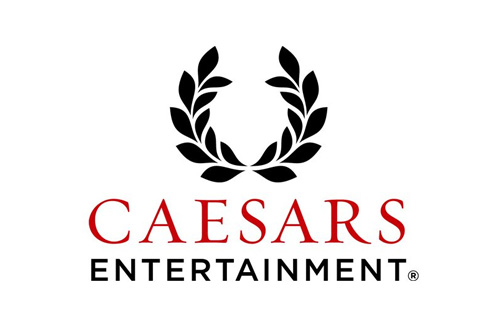New Jersey Governor Chris Christie’s veto on Friday of a bill designed to allow legalized sports betting at select New Jersey gambling facilities resets the stage for a troubled Atlantic City gambling industry that looked toward the possible signing of the bill as a chance to breath new life into their dwindling revenue streams.
The state’s repeated efforts to formally legalize and regulate sportsbetting have been the centerpiece of a heated tug-of-war for three years. Back in 2011, the state’s voters approved a referendum legalizing sports betting, which would have put New Jersey on a par with Nevada, the only US state where full-fledged sportsbetting is legal. (Three other states allow limited forms of parlay betting involving sports in conjunction with state-lottery offerings.)
As soon as the state’s legislature approved the voter referendum, the sports leagues themselves stepped in and successfully sued the state. The leagues — the NFL, NBA, MLB, NHL and college’s NCAA — triumphed in the matter earlier this year when the US Supreme Court refused to hear an appeal. The ruling declared that under 1992’s PASPA (The Professional and Amateur Sports Protection Act), New Jersey had given up its rights to implement legal sports betting by passing on a one-year window implemented within that law.
For New Jersey sports betting, 2011 and the voter referendum was two decades too late.
 That led to this latest bill, New Jersey SB 2250, which was quickly assembled and passed in June within three days of the state’s appeal to the Supreme Court being declined. The bill passed both houses of the New Jersey legislature by huge margins, with more than 90% of the vote, excluding abstentions.
That led to this latest bill, New Jersey SB 2250, which was quickly assembled and passed in June within three days of the state’s appeal to the Supreme Court being declined. The bill passed both houses of the New Jersey legislature by huge margins, with more than 90% of the vote, excluding abstentions.
From there, the bill went on to Chris Christie’s desk, where he was forced to sign or veto by August 10th. This bill was unlike an earlier pro-online-poker bill in the state, which once suffered a technical veto due to end-of-session rules. Had Christie not actively vetoed SB 2250, it would have become law.
While Gov. Christie has demonstrated a repeated inclination to wait until the last moment to veto or sign controversial legislation, the fate of this bill was known behind the scenes in Trenton at least a week ago. On August 1st, Christie sent to the state’s legislature an advance copy of his intent to veto the bill.
The complete letter he sent has yet to be published in text form, so we’ll append that to the end of this update.
The August 1st letter also casts comments late last week by the bill’s primary sponsor, State Senator Raymond Lesniak, in a somewhat different light. Last week, Lesniak urged Jersey constituents to contact Christie’s office and petition him to sign the bill, and Lesniak’s own web site still contains an online petition form set up to accomplish that very act of citizen lobbying.
However, Lesniak had to have already known that the Christie veto was coming when he made his comments to New Jersey media outlets last week. Such is political diplomacy, more or less.
Lesniak himself was quick to comment on the official announcement of the veto by Christie, who had previously and very publicly supported the state’s efforts to legalize betting on sports. “He’s giving up,” Lesniak told NJ.com. “And that’s sad, because he’s giving up a great opportunity for New Jersey to have the benefits from sports betting that Las Vegas has, and that are currently enjoyed by organized crime.”
Christie, indeed, may be curtailing his support for his own state’s industry in favor of his long-term political fortunes, assuming he does, as expected, run for President in 2016. The sportsbetting issue appears to be a loser with the Republican party’s very conservative policy-making base, despite pleas from Christie on similar issues that the state would override his vetoes anyway.
Actually, the New Jersey legislature has never overridden a Christie veto, though Lesniak has vowed to try with the current bill. What remains to be seen is how many of the state’s minority GOP legislators could be talked into supporting a veto override, joining forces with the state’s gambling industry (who want the sportsbetting approved),t going against the national GOP (who doesn’t).
Any veto override effort led by Lesniak would require two thirds of both the New Jersey Assembly and Senate.
The complete text of Christie’s notice that he intended to veto the New Jersey sports betting bill:
———————————————————————————
August 1, 2014
Senate Bill No. 2250
To the Senate:
Pursuant to Article V, Section 1, Paragraph 2014 of the New Jersey Constitution, I am returning Senate Bill No. 2250 without my approval.
Since the earliest days of my Administration, I have demonstrated my firm commitment to reversing the trend of economic contraction in the State’s gaming industry. Together with the Legislature, my Administration has acted boldly to revitalize the gaming industry and to set a new course for economic growth and job creation in this critically important sector of our economy. From the historic establishment of a Tourism District in Atlantic City to expanded wagering opportunities at casinos and racetracks, including the implementation of one of our nation’s first Internet gambling laws, I have consistently pursued new and innovative ways to make New Jersey a more competitive gaming jurisdiction and to enhance the financial viability of the State’s gaming industry.
Consistent with these efforts, I signed into law legislation authorizing sports wagering at casinos and racetracks in January of 2012. This action followed the passage of a voter-approved Amendment to the State Constitution permitting sports wagering at these venues. These efforts were immediately met with resistance from the four major professional sports leagues and the National Collegiate Athletic Association, who brought suit alleging conflict between New Jersey’s sports wagering law and the federal Professional and Amateur Sports Protection Act (“PASPA”).
As has been well chronicled, the plaintiffs in this legal battle prevailed in a federal court trial in their efforts to prevent New Jersey casinos and racetracks from lawfully offering sports betting opportunities, under carefully prescribed rules, to their patrons. As has also been well chronicled, the State, at my direction, appealed that decision to the United States Court of Appeals for the Third District, which agreed with the trial court, and then again to the United States Supreme Court, which declined to take up the State’s case. Thus, after a spirited legal effort, the Third Circuit’s opinion that PASPA prevents the implementation of New Jersey’s sports wagering law represents the binding and final judicial interpretation of federal law. While I do not agree with the Circuit Court’s conclusion, I do believe that the rule of law is sacrosanct, binding on all Americans. That duty adheres with special solemnity to those elected officials privileged to swear an oath to uphold the laws of our Nation.
In a novel attempt to circumvent the Third Circuit’s ruling, this bill states that all prohibitions against wagering on the results of any professional, college, or amateur sport or athletic event, set forth in State law would no longer apply to wagering at casinos or racetracks in this State. In essence, this bill partially deregulates betting at casinos and racetracks in an attempt to sidestep federal law. While I support the intentions of the Legislature to continue our shared commitment to enhancing the economic viability of our gaming industry, I cannot sign this bill, which was introduced on the same day the Supreme Court declined to hear our appeal, and then was rushed to final passage just three days later. Ignoring federal law, rather than working to reform federal standards, is counter to our democratic traditions and inconsistent with the Constitutional values I have sworn to defend and protect.
While I remain open to exploring legally sound ways to let the State’s casinos and racetracks offer sports wagering, I am mindful that this process takes time. As the sponsors point out, the Third Circuit’s opinion may not have foreclosed all legal avenues for permitting sports wagering within the State. Now that the Supreme Court has made clear that it will not be taking the case, the time is right to examine the Third Circuit’s opinion carefully and determine if a different approach towards sports wagering would comply with federal law, and further whether this new approach would be in the best interests of the State. In the meantime, we must respect the rule of law and the decisions of our courts.
Accordingly, I herewith return Senate Bill No. 2250 without my approval.
Respectfully,
Chris Christie, Governor
100% up to $3,000 Bonus
Bovada is our most recommended ONLINE CASINO and POKER ROOM for US players with excellent deposit options. Get your 100% signup bonus today.




Leave a Reply
You must be logged in to post a comment.